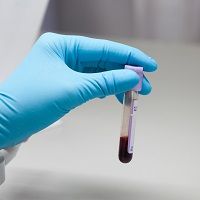Article
Get Tested is the Message during Hepatitis Awareness Month
Author(s):
With May officially Hepatitis Awareness Month, there is an active campaign underway designed to encourage people to get tested for hepatitis C. May 19 has been designated National Hepatitis Testing Day in the US for the fifth year running.

With May officially Hepatitis Awareness Month, there is an active campaign underway desigend to encourage people to get tested for hepatitis C. May 19 has been designated National Hepatitis Testing Day in the US for the fifth year running.
Among people in the nation who die from viral hepatitis, about 90% of the deaths are caused by chronic infection of the hepatitis C virus, according to a release from the Centers for Disease Control and Prevention. Health officials estimate that some 3 million people are living with the liver damaging virus and many may not know they have it because symptoms often don’t appear until late in the disease.
There is no vaccine for hepatitis C, a blood borne virus that now is most often spread through sharing of needles by injection drug users. Some who get the virus clear it while still in the acute stage but about 75% to 85% of people who become infected develop chronic infection, according to the CDC.
In the past few years, the FDA has approved several new antiviral drugs for treatment of the hepatitis C virus. The newer drugs have higher cure rates and work faster with fewer side effects.
About 15,000 people die every year from liver cancer or chronic liver disease associated with viral hepatitis, an inflammation of the liver, according to the CDC release. In the US, the most common types of viral hepatitis are hepatitis A, hepatitis B, and hepatitis C.
A rise in viral hepatitis-related liver cancer in recent decades has disproportionately affected some populations. The highest number of new cases has been among Asians and Pacific Islanders, but increases are also higher among African Americans, baby boomers and men, according to a CDC release.
<!--page-->
May is designated as Hepatitis Awareness Month in the US and is a time when health officials across the nation work to raise the profile of all viral hepatitis diseases, in particular hepatitis C, which now has the grim distinction of killing more Americans than any other infectious disease, according to a recent CDC report.
In recent years, awareness efforts about the dangers of hepatitis C and a push to encourage more testing has focused on groups with higher risk of being infected with the virus. One large group targeted by health officials are the so called baby boomers, people born between 1945 and 1965, states a CDC release.
People from the baby boom generation could have been infected with hepatitis C many years ago before the virus was identified and when injection and blood transfusion technologies were less safe than they are today. If the virus goes undetected and untreated, people infected are at risk for developing liver damage, liver cancer and possibly unknowingly spreading the virus to others.
Others at risk for the disease, include injection drug users, recipients of clotting factor concentrates before 1987, blood transfusion or organ recipients before July 1992, long term hemodialysis patients, health care workers exposed to needle sticks, people infected with HIV and babies born to mothers who have the virus.
Hepatitis Testing Day observed this week on May 19 is a way to highlight the importance of screening populations who are at risk for viral hepatitis, according to the CDC. The White House is joining the observance by hosting a live webcast from 10:00am to 12:30pm, which will feature presentations from federal and state leaders and community group representatives, according to a release from the US Department of Health and Human Services.





